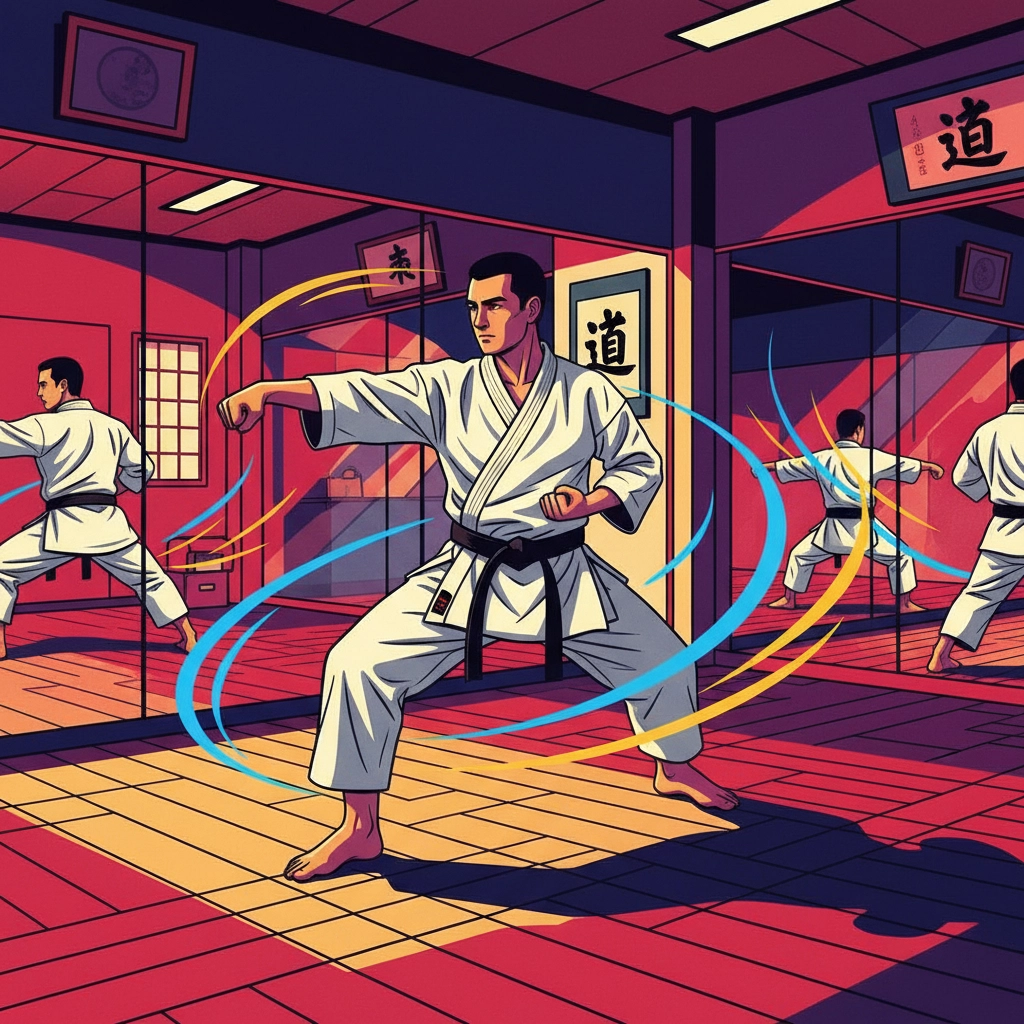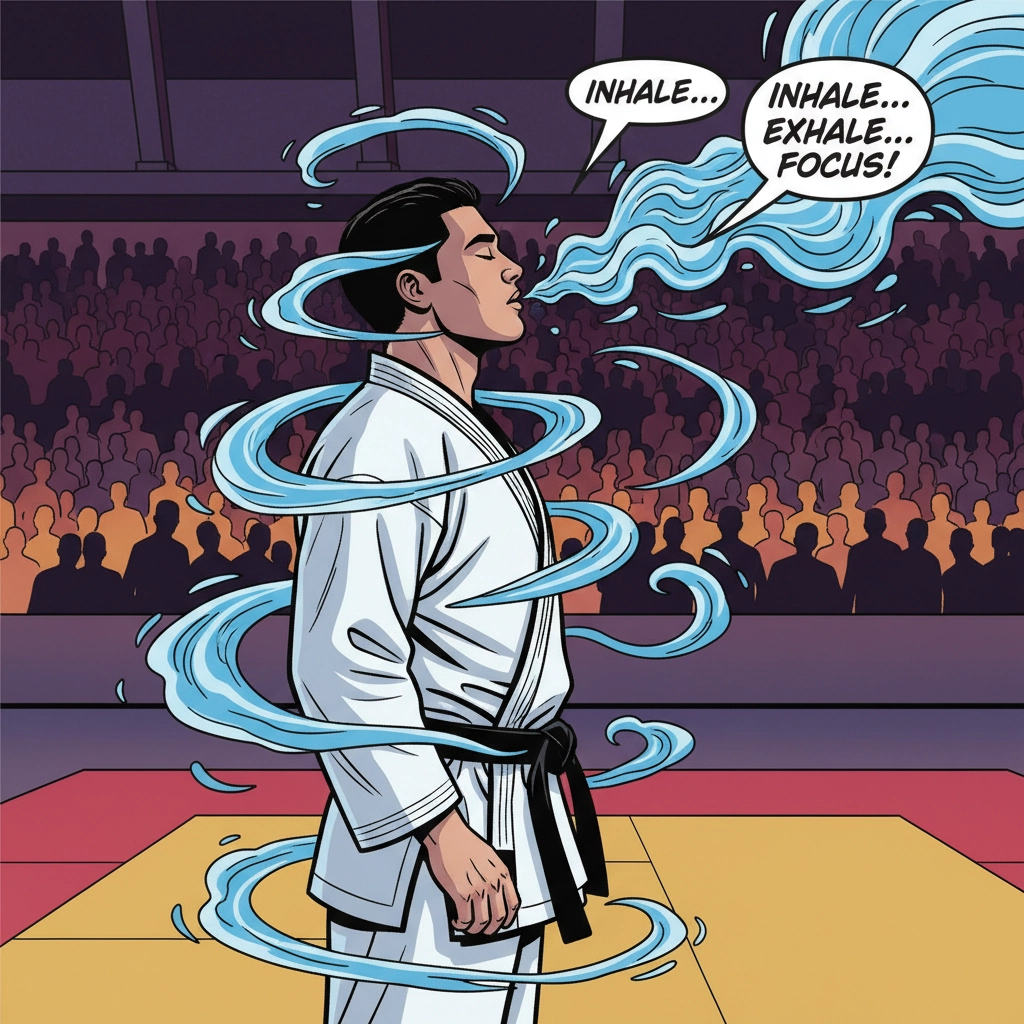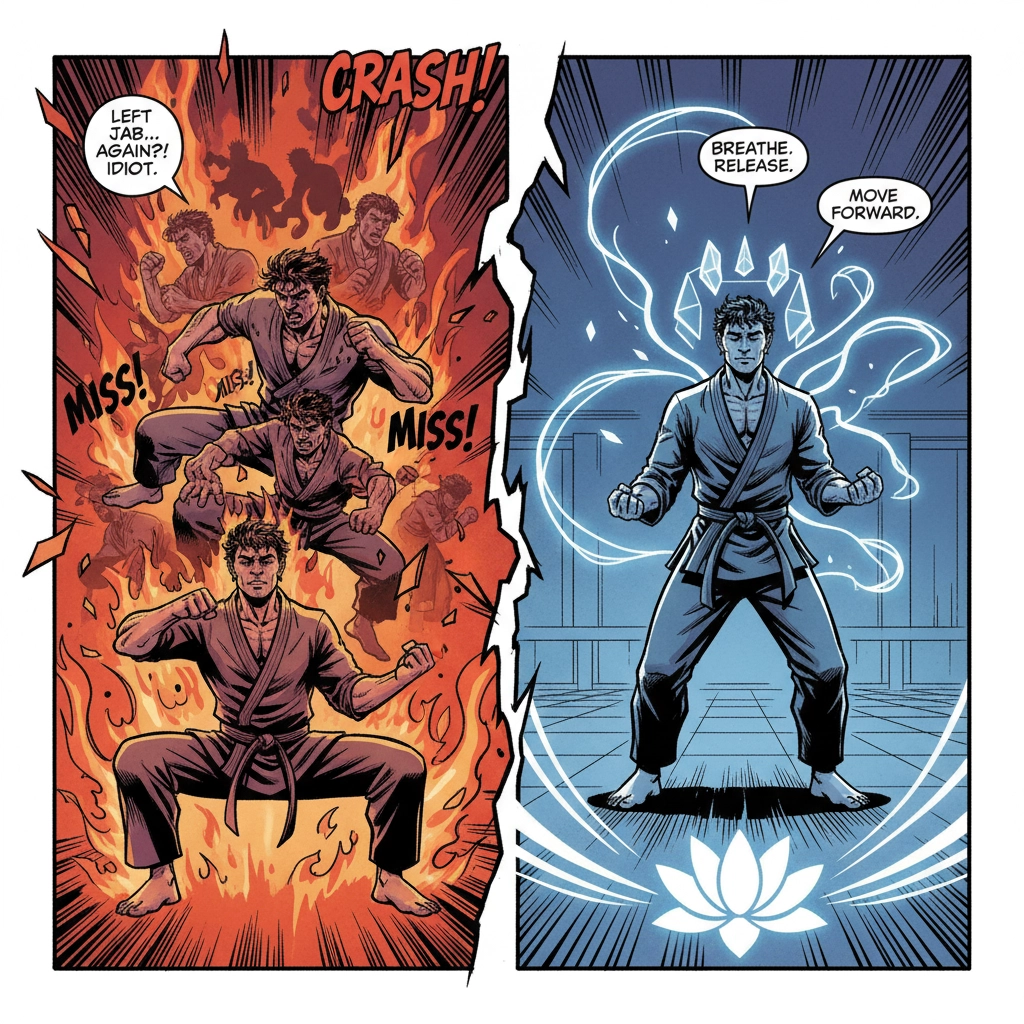Hey everyone! Let's talk about something that doesn't get nearly enough attention in most dojos – your mental game. You can have perfect technique, lightning-fast kicks, and incredible flexibility, but if your head isn't in the right place, you're fighting an uphill battle.
I've watched countless martial artists sabotage their own progress with mental mistakes they don't even realize they're making. The good news? Once you know what to look for, these issues are totally fixable. Let's dive into the seven biggest mental training mistakes and how to turn them around.
Mistake #1: The Perfectionist Trap
You know this person – maybe it's you. They miss one technique in forms practice and their entire training session is "ruined." They land 9 out of 10 kicks during pad work and obsess over that one miss. This all-or-nothing thinking is absolutely crushing your progress.
I see this constantly during sparring. A student gets scored on once and suddenly they're convinced they're terrible, even though they dominated the rest of the round. That's perfectionist thinking stealing your confidence.
The Fix: Start celebrating progress over perfection. When you nail 9 out of 10 techniques, focus on those 9 wins. That missed technique? It's just data – information about what to work on next. Try this: after each training session, write down three things you did well before noting what needs improvement.

Mistake #2: Obsessing Over Pre-Competition Nerves
"Why am I so nervous? I shouldn't feel this way. What if I mess up because I'm anxious?" Sound familiar? Here's the thing – everyone gets nervous before competition. The mistake isn't feeling nervous; it's spending all your mental energy fighting those feelings instead of channeling them.
That butterfly feeling before stepping onto the mat? It means you care. It means your body is getting ready to perform. Stop trying to eliminate nervousness and start working with it.
The Fix: Instead of asking "How do I stop being nervous?" ask "How do I want to feel when I compete?" Then practice techniques that get you there. Try this simple breathing technique: 4 counts in, hold for 4, out for 6. Do this while visualizing yourself performing confidently.
Mistake #3: Getting Stuck on Mistakes
This one's huge in martial arts. You throw a technique that gets countered, and suddenly that's all you can think about. You're not present for the next exchange because you're replaying that mistake in your head. Meanwhile, your opponent is moving forward while you're stuck in the past.
I've watched students completely lose focus during forms competition because they stumbled on one move early in their routine. They're so busy beating themselves up that they make three more mistakes they normally never would.
The Fix: Develop a reset ritual. Maybe it's taking a deep breath and adjusting your belt. Maybe it's a specific phrase you tell yourself. The key is having a consistent way to acknowledge the mistake and immediately shift your focus back to the present moment. Practice this: "Next technique, next opportunity."
Mistake #4: Creating Impossible Pressure
"I have to win this tournament." "I can't make any mistakes." "Everyone's watching – I have to be perfect." When you put this kind of pressure on yourself, you're setting yourself up to fail before you even start.
This pressure thinking turns sparring into a life-or-death situation instead of what it really is – a chance to test your skills and learn. When the stakes feel impossibly high, your body tenses up, your breathing gets shallow, and your technique suffers.
The Fix: Replace "I have to" with "I get to." Instead of "I have to win this match," try "I get to show what I've learned." Focus on process goals you control, like maintaining good distance or remembering to breathe, rather than outcome goals like winning or not getting scored on.

Mistake #5: Brutal Self-Talk
Pay attention to how you talk to yourself during training. Would you talk to a training partner the way you talk to yourself? If your internal voice sounds like a harsh critic constantly pointing out flaws, you're actively working against yourself.
"That was terrible." "I'm so slow." "I'll never get this right." This kind of self-talk doesn't motivate – it destroys confidence and makes you tentative. You end up holding back instead of committing to techniques.
The Fix: Become your own good coach instead of your own worst enemy. Good coaches are honest but encouraging. They point out what needs work while acknowledging effort and progress. Try replacing harsh criticism with constructive feedback: "I'm still learning this technique" instead of "I'm terrible at this."
Mistake #6: Catastrophic Thinking About Setbacks
One bad training session becomes "I'm losing my edge." One competition loss turns into "Maybe I'm not cut out for this." This kind of thinking takes temporary setbacks and turns them into permanent character flaws.
Every martial artist has off days. Every competitor loses matches. Every student struggles with new techniques. The mistake is interpreting these normal parts of the journey as signs of failure or proof that you don't belong.
The Fix: Zoom out and look at the bigger picture. One bad day doesn't erase months of progress. One loss doesn't cancel out all your wins. Keep a training journal where you note both struggles and victories – it'll help you see patterns and remember that setbacks are temporary.

Mistake #7: Treating Mental Training Like an Afterthought
Here's the big one: you spend hours perfecting your physical techniques but barely any time working on your mental game. You drill kicks until they're automatic, but you've never practiced staying calm under pressure or maintaining focus when you're tired.
Mental skills are just that – skills. They need to be practiced consistently, not just when you remember or when competition is coming up. Your mind is like a muscle that gets stronger with training.
The Fix: Make mental training part of your regular routine. Spend 10 minutes after each physical training session working on visualization, breathing techniques, or positive self-talk. Just like you wouldn't expect to nail a technique after practicing it once, don't expect mental skills to develop without consistent practice.
Putting It All Together
The beautiful thing about mental training is that small changes can create huge improvements. Start with just one of these areas – maybe the one that resonated most with you. Practice it consistently for a few weeks before moving on to the next.
Remember, even the most successful martial artists deal with these mental challenges. The difference is they've learned to recognize and address them instead of letting them run the show. Your physical training has brought you this far, but your mental training will take you to the next level.
Which mistake are you going to tackle first? The one that made you think "Oh, that's totally me"? That's your starting point. Your future self will thank you for the work you put in today.
The strongest weapon you have isn't your fastest kick or your most powerful punch – it's a mind that's trained to stay calm, focused, and confident no matter what happens on the mat.

